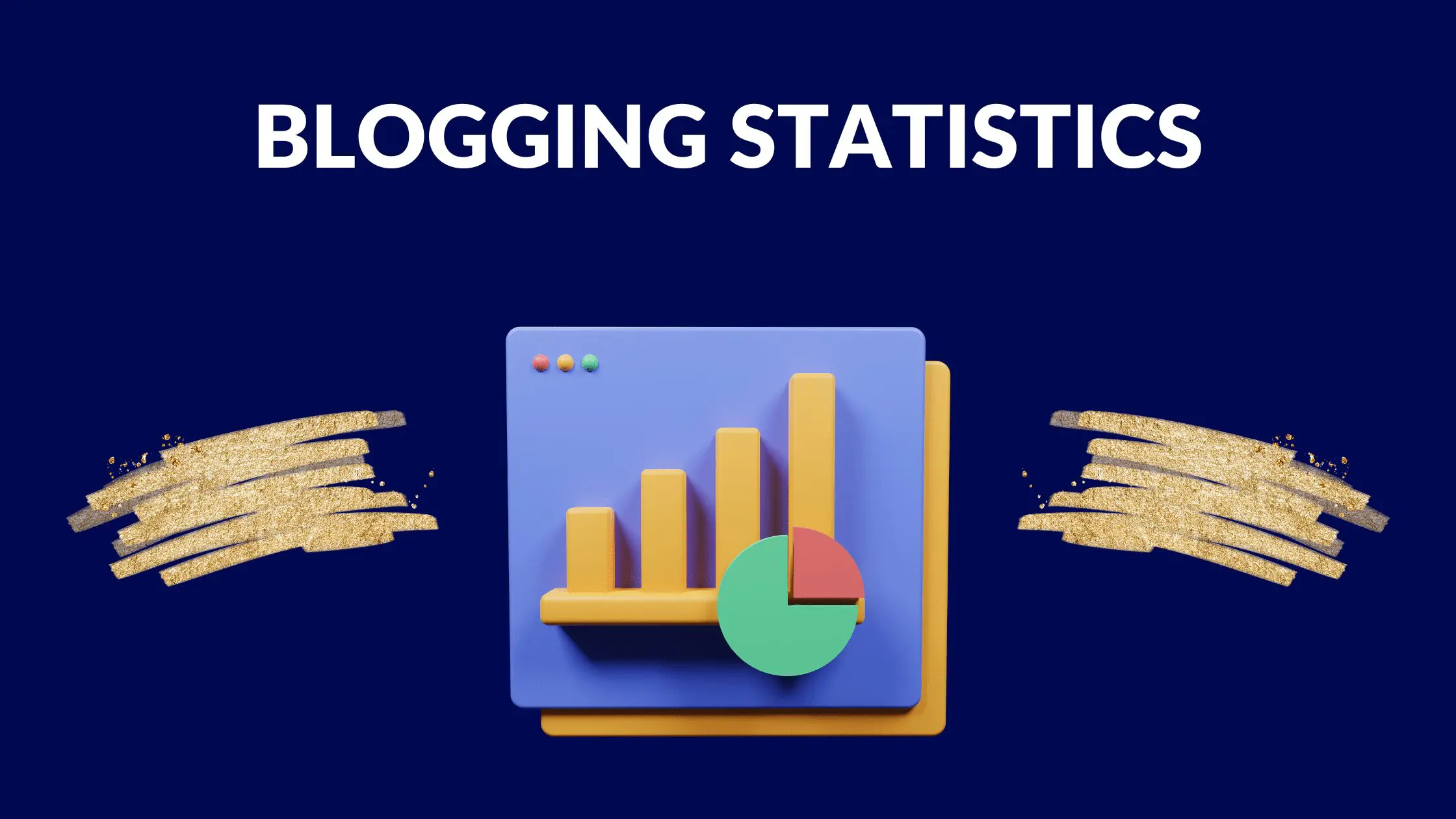Blogging Myths Debunked

Written by Casey Botticello
Disclosure: Some of the links below are affiliate links, meaning that at no additional cost to you, I will receive a commission if you click through and make a purchase. Read our full affiliate disclosure here.
There is no shortage of advice online from “experienced” bloggers. And I suppose I should include myself in this group (I do run a blog full of blogging advice).
However, I get questions every day from new or potential bloggers, that are often based of inaccurate claims they read on Reddit, Quora, or on an anonymous blog.
One thing I take pride in with all my blogging experiments and the findings that I share, is I always strive to publish truthful and complete information.
The truthful part is sort of self explanatory. It’s good form to not lie to your readers. This should be obvious!
However, a lot of the advice given to bloggers on forums, social media, or even in marketing materials, is meant to simplify the blogging process.
The reality is that becoming a full time blogger is hard work! And the field is constantly evolving. And if you count SEO as part of the broader topic of blogging, there is a lot of claims that are only partially true or, more commonly, are completely unverifiable.
This means that while someone may be well intentioned, and possibly correct about some obscure piece of blogging wisdom, it’s important that bloggers spend time understanding the basics which are broadly researched and discussed in the digital publishing community.
This article will examine some of the biggest blogging myths, and evaluate whether they are accurate, contain some truth but are misleading, or are blatantly false. With these blogging myths debunked, it’s my hope that bloggers will avoid some of the mistakes frequently made by beginner bloggers.
Biggest Blogging Myths

Myth #1: Blogging is Dead, a Fad, or Otherwise Over

Blogging is alive and well. I have read predictions about blogging being “a fad” or warnings that the entire industry will collapse.
Blogging may someday become non-financially viable, but in 2023, there are millions of people around the world who derive their full time income or a significant amount of their income from blogging.
Additionally, as most blogging statistics show, there is little evidence that blogging is in a decline.
That said, blogging is ever evolving, so the strategies implemented by bloggers, and the income sources of bloggers can shift dramatically over time. But blogging itself is not dead and is still profitable.
Myth #2: Only Talented Writers Can Succeed as Bloggers

Your success as a blogger is not determined by the level of writing talent that you have. Sure, being a talented writer can help with blogging, but the way you write an SEO-optimized blog post is very different than the style and structure of prose you might submit to a literary content.
Additionally, this myth misses a bigger point: bloggers are not generally charging readers directly for their content.
Blogs can be monetized in many ways, but almost none of them rely on a reader evaluating the quality of your writing and making an appropriate micro payment.
For example, most readers would agree that clickbait articles on Buzzfeed or even opinion pieces in major news publications, are not examples of well crafted writing.
In fact, the author oftentimes writes the piece in a very one sided way. Sometimes this is due to unconscious bias, other times they are deliberately trying to stir up negative sentiment among their readers.
Why?
In many cases, these sites are monetized using an advertising model that rewards reader engagement. In other words, viewer sentiment may not matter to advertisers-all they care about is who is viewing their ads and for how long.
3. SEO Basics Are Impossible for New Bloggers to Understand

This myth is likely a bi-product of the industry of SEO experts, who offer to do the “hard work” for creatives and supposedly optimize your site and content to appease the Google gods.
This is mostly marketing spin. Not to mention that most people are lazy and want to find quick success.
However, if you want to know more about current SEO practices than most SEOs, read the Google quality evaluator guideline documents, which are available for free and are written in clear language with numerous examples.
Most SEO experts have never even read this ~100 page document!
To be clear, no blogger needs to read this whole guide to understand how to start, build, and monetize their blog.
But this illustrates that SEOs who make six figures per year off of newbie bloggers, are not necessary to translate SEO-terminology for the average reader and writer.
Plus, there are literally hundreds of sites that cover SEO related topics in depth, and publish their findings completely for free!
Blogging Guide offers some SEO guides, but you don’t need to rely on our content.
There are tons of reliable blogs that distill the more complex elements of SEO. Some examples include:
And if you want to read a super condensed version of many of the introductory topics, check out our articles on SEO, including:
4. Posting Daily is Essential

This myth might originate from a well intentioned place. Content velocity and publishing behavior does ultimately impact your blog’s traffic and success.
However, when it comes to daily posting (or pretty much any fixed interval of posting), this is a classic case of correlation does not mean causation.
Yes, lots of top bloggers post on a regular basis. But there is no specific evidence that Google value a blogger who publishes posts at precisely the same time, every day.
Most bloggers go through periods where they scale their content production by hiring freelancers. During this period they may produce 10 blog posts per day or more!
Conversely, many bloggers experience burnout and may take weeks or months off from blogging.
Neither of these extremes condemns your blog.
How often you should post depends on your specific goals, the stage your blog is at, your site’s perceived authority within your niche, the age of your site, penalties levied against your site by Google, the number of high quality backlinks, and 1,000 other factors!
So please don’t let this notion of “I need to post every day or I’m not cut out to be a blogger!” destroy your blogging ambitions.
You can succeed publishing blog posts at a wide range of frequencies. Not to mention, a “blog post” is not the most precise measurement of content produced anyway.
For example, do you think Google really values a 300 word, jumbled thought, as much as a 3,000 word guide that explores the ins and out of a topic and contains data never published on the internet?
Obviously not!
The length of a blog post matters far more than the number of “unique” blog posts published.
5. Bloggers Are Able to Quit Their Jobs and Pursue Blogging in 1 Year (or Less)

Lots of blogging gurus tout programs, with offers claiming to help you become a full time blogger within 1 year (or sometimes less).
These claims are based on the tiniest grain of truth.
Are there cases where bloggers work hard for a year and are able to instantly replace their full time income with income from their blog?
Yes. But these are truly 1 in a million cases.
Successful bloggers earn money through the slow and sporadic successes over multi year periods.
Even in a recent case study of mine, which turned out unusually well, I was able to launch a blog, scale it, and get it approved by Mediavine, in just under 6 months.
So while this site should make a few thousand dollars per month going forward, this is not enough to replace most full time salaries, and is the fastest period of time in which I went from 0-50,000 sessions, after building 25+ blogs!
And the domain I built this site on was an aged domain, further making this process harder for the average beginner blogger to replicate.
Even if you frontloaded your content production and were able to churn out dozens of high quality blog posts per month, with a brand new domain, you can expect to wait at least 4-6 months for your content to even index.
This initial observation period is sometimes referred to as the Google sandbox.
Whether the Google sandbox tehcnically exists is irrelevant; what all experienced bloggers will tell you is that trust is initially very hard to establish with Google.
Over time, Google will gradually index, and ultimately rank, your content (assuming its not spam and is of decent quality).
If you are even getting large volumes of traffic by the end of year 1, you are doing well as a blogger! But it then takes time to monetize this traffic.
This may involve jumping through arbitrary hoops for ad networks, applying for affiliate programs and adding the links to your content, or creating a course or eBook to sell on your site.
The point is, blogging is absolutely not a get rich quick scheme. It’s the exact opposite.
6. Successful Bloggers Spend All Their Time Writing

This misconception is actually pretty undertsnadble. But there are very few bloggers who literally spend all their working day thinking of articles, typing them out, and publishing them.
So, what other tasks end up taking up a blogger’s energey and attnetion? Here are just a few of the tasks that bloggers work on besides writing, editing, or planning content:
-
Promotion and marketing: Bloggers need to share their content on social media platforms, network with other bloggers and influencers, and engage in email marketing to grow their audience.
-
Search Engine Optimization (SEO): Bloggers should optimize their content and website for search engines to improve organic search rankings and increase website traffic.
-
Audience engagement: Responding to reader comments, emails, and messages, as well as engaging with followers on social media, helps bloggers create a sense of community and foster loyalty among their audience.
-
Analytics and performance tracking: Bloggers should monitor their blog’s performance metrics (e.g., page views, time spent on site, bounce rate) to make informed decisions about their content strategy.
-
Graphic design and multimedia: Bloggers often create visuals, such as images, infographics, and videos, to enhance their content and make it more engaging for their audience.
-
Website maintenance: Regularly updating and improving the blog’s design, ensuring it’s mobile-friendly, and addressing any technical issues are essential for providing a smooth user experience.
-
Networking and collaborations: Bloggers often collaborate with other bloggers, influencers, or brands through guest posts, sponsored content, or brand partnerships to expand their reach and grow their audience.
-
Education: Bloggers need to stay up-to-date with the latest trends, tools, and best practices in their niche, as well as improve their skills in writing, marketing, and other relevant areas.
-
Monetization and financial management: Bloggers who earn income from their blog need to manage various revenue streams, such as affiliate marketing, sponsored content, or selling products/services, and handle tasks like invoicing, bookkeeping, and tax preparation.
7. Bloggers Don’t Have Any Costs or Expenses (Blogging is Free)

Technically, most tasks, apps, programs, and tools used by bloggers can be used for free or offer a free tier.
For example, you can build a free website on WordPress, or on third party platforms such as Medium, Substack, Vocal, and many more.
However, there are significant limitations with almost all of these free services. So while it may be theoretically possible to use them, successful bloggers need to invest their time and money strategically into their blog.
Some things worth spending money on as a blogger (even during the early months of blogging) include:
- Your own domain name
- Self-hosting
- Website themes
- Plugins or tools for CMS
As you begin to see signs of growth and success (and begin to earn money), there are plenty of other expenses worth paying for and blogging investments that pay off:
- Keyword Research Tools
- Premium Hosting
- Outsourcing Content
- AI Writing Tools
- Better computer equipment
Above all though, blogging, even at its early stages, requires a huge commitment of your time. There is a very real opportunity cost associated with your time. So while the amount you end up spending may vary, blogging is not free.
Takeaway
Unfortunately, there are many myths about blogging that deter many people from starting a blog or encourage them to start a blog without understanding how much effort it really takes to make it successful. Luckily, if you do your research, and rely on trusted bloggers who provide evidence backed strategies, it is entirely possible to make a full time living as a blogger.



